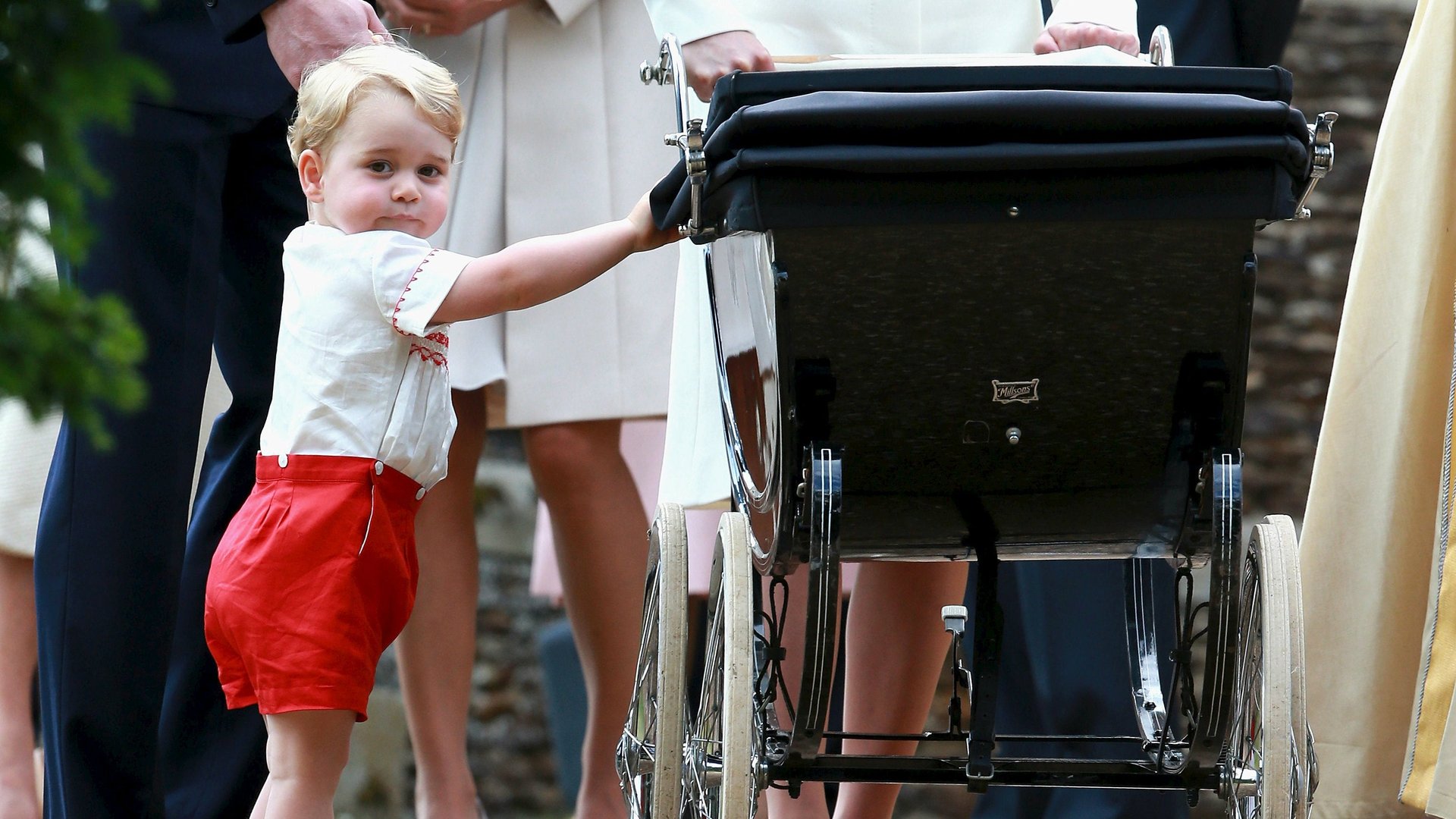If you want to avoid baby-naming regret, think like a posh Brit
Anyone who has had a baby, is having a baby, or has thought about having a baby, knows that coming up with a name is a supremely fraught process.


Anyone who has had a baby, is having a baby, or has thought about having a baby, knows that coming up with a name is a supremely fraught process.
You and your partner need to agree. There are families to appease. A name is meant to capture a personality, but no parent has a clue what the kid’s personality will be. Cultural trends play a role (hello, Elsa), but a kid’s name is also meant to stand the test of time (bad luck, Khaleesi).
A recent poll of parents suggests that nagging doubts about their kids’ names linger for a long time. Mumsnet, a popular British parenting site, polled 1,000 parents and found almost one in five (18%) regretted the name they picked for their child, with the main reason being that it turned out to be too common.
The Brits may have a solution to this: give your kid a whole bunch of names. According to Anglophenia, there is a long list of posh Brits with a laundry list of names: there’s Hugh John Mungo Grant and Rosamund Mary Ellen Pike, as well as Benedict Timothy Carlton Cumberbatch and James Hugh Calum Laurie (Hugh Laurie). The more given names, the more chances one will work out.
The tradition might be related to Brits’ enduring love of all things royal: Queen Elizabeth II is Elizabeth Alexandra Mary; Prince Charles is Charles Philip Arthur George; Prince William is William Arthur Philip Louis. There are of course examples in the US, too, like George Herbert Walker Bush.
To avoid the dreaded common name, there is also the long-established shift toward “original” names, in part thanks to the fact that a lot of celebrities have gone down this path with gusto: there’s Apple Martin, daughter of Gwyneth Paltrow and Chris Martin; Sunday Rose Kidman Urban, daughter of Nicole Kidman and Keith Urban; and Apollo Bowie Flynn, son of Gwen Stefani and Gavin Rossdale, to name a few.
Jean Twenge, co-author of The Narcissism Epidemic: Living in the Age of Entitlement and a professor at San Diego State University, attributes the shift away from common names to a rise in narcissism. She looked at 325 million babies born in the US between 1800 and 2007 and found that in the 1800s 40% of boys were given one of the 10 most common names, compared with fewer than 10% today. For girls, getting a top-10 name dropped from 25% in 1945 to 8% today.
The same can be seen in Britain. According to Gregory Clark, author of The Son Also Rises: Surnames and the History of Social Mobility, before 1800 half of all English men shared one of four first names; by 2012, the top four names—Harry, Oliver, Jack, and Charlie—accounted for just 7% of English baby boys.
“There’s been this cultural shift toward focusing on the individual, toward standing out and being unique as opposed to fitting in with the group and following the rules,” Twenge told LiveScience. ”I think it is an indication of our culture becoming more narcissistic.”
But how many parents will eventually regret it?